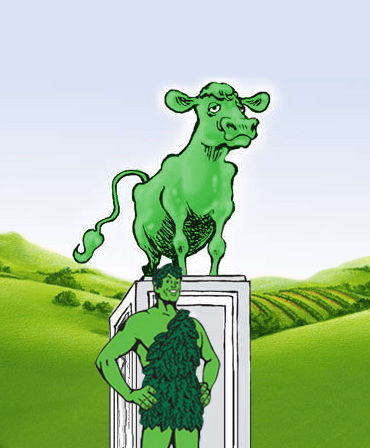
By John Helmer, Moscow
According to Colin Russell, an Australian who was the radioman on board the Greenpeace vessel, Arctic Sunrise, he’s “a good man”. Arrested by Russian coast guards after barricading himself in the radio room on September 19, he was imprisoned in Murmansk and St. Petersburg, until he was granted bail and released last Thursday, November 28. Russell claimed on his release: “I don’t understand the reasons why I’m being detained. It’s two months’ hard time for nothing. I’ve done nothing wrong.”
The initial charges considered against Russell by Russian prosecutors were resisting arrest, disorderly conduct, and piracy. The legal case for the piracy charge has been spelled out, not in the Russian courts, but in the federal US District Court and US Court of Appeals for the 9th Circuit, which covers the northern Pacific coast states and Alaska. If you want to understand why piracy may be charged against unarmed attackers of a vessel at sea, read this [1] US ruling carefully.
The charge which the Investigative Committee, the criminal offence branch of the Russian General Prosecutor, settled on for Russell, as for his 29 Greenpeace colleagues and crew members, was disorderly conduct, the Russian term for which is хулиганство. That has been translated into English as hooliganism, which has no legal connotation whatever. Actually, its origin is in English dislike of Irish behaviour, but that’s another story. To understand why the Russian charge against the Greenpeace group is a lesser one than charges for which Greenpeace and its members have been arrested, imprisoned, tried and convicted – repeat convicted – in the courts of the US, the Netherlands and Greenland (Denmark), read this [2].
 Russell (right) may be the “good man” he says he is. He may be the “beautiful, peaceful man” his wife says he is. He will have his day in St. Petersburg court to explain what he did, and why he did it. By then he will have understood what he did to convey orders between Greenpeace International headquarters, the master of the Arctic Sunrise, and the speedboat crews attempting forcibly to board the Russian oil rig Prirazlomnaya in the Pechora Sea on September 18. For extended testimony of what exactly happened that day, start here [3], and continue reading these [4] depositions.
Russell (right) may be the “good man” he says he is. He may be the “beautiful, peaceful man” his wife says he is. He will have his day in St. Petersburg court to explain what he did, and why he did it. By then he will have understood what he did to convey orders between Greenpeace International headquarters, the master of the Arctic Sunrise, and the speedboat crews attempting forcibly to board the Russian oil rig Prirazlomnaya in the Pechora Sea on September 18. For extended testimony of what exactly happened that day, start here [3], and continue reading these [4] depositions.
Until his day in court, scheduled for February, Russell warrants the presumption, if not of goodness, then of innocence. In Russian, that’s невиновность. The court may come to the conclusion that other Russian terms apply to Russell’s conduct – наивность (naivety) or невежество (ignorance). Readers and professors of international jurisprudence are invited to write in with examples of legal codes around the world in which a plea of ignorance of the law is an allowable defence against conviction for crime.
 In the Greenpeace operation against the Prirazlomnaya, the lawyer for the organization, Daniel Simmons, has testified already before the International Tribunal for the Law of the Sea (ITLOS) in Hamburg that he had “not been able to find any criminal or administrative rule in Russian law which imposes a sanction for entering a safety zone.” He also told the tribunal that he was keeping secret the legal advice he had given the headquarters executives of Greenpeace, along with the master and crew of the Arctic Sunrise, “in view of the ongoing prosecutions in Murmansk.” Simmons’s testimony can be read at pages 15 to 17 of the ITLOS hearing [3] on November 6.
In the Greenpeace operation against the Prirazlomnaya, the lawyer for the organization, Daniel Simmons, has testified already before the International Tribunal for the Law of the Sea (ITLOS) in Hamburg that he had “not been able to find any criminal or administrative rule in Russian law which imposes a sanction for entering a safety zone.” He also told the tribunal that he was keeping secret the legal advice he had given the headquarters executives of Greenpeace, along with the master and crew of the Arctic Sunrise, “in view of the ongoing prosecutions in Murmansk.” Simmons’s testimony can be read at pages 15 to 17 of the ITLOS hearing [3] on November 6.
Simmons’s claims have been disputed [5] publicly by the master of the Arctic Sunrise, Peter Wilcox, and by Kieron Bryan, a journalist paid by Greenpeace to report from the Arctic Sunrise, who was jailed with the others. For Bryan’s statements to The Times (London), click here [6]. To avoid paying Murdoch for access, read this [7].
To judge, if not to prejudge Russell’s plea, a great deal of reading in the backfile is required. But there’s the rub. If you are an Australian reader, you will have the disadvantage of not knowing a single detail of what the Russian government’s officials, including the Foreign Ministry, the Prosecutor-General in Moscow, the Investigative Committee in Murmansk, the St. Petersburg court, the Federal Security Service which commands the coast guards, and the judges of ITLOS have had to say on the facts and the law in the matter.
Not a single Australian news outlet, not the regular newspapers, nor the state ABC radio, the commercial media, or the internet media have reported a Russian response to the allegations which Greenpeace, Russell, and his supporters have laid out. Andrew Duffy for the Melbourne Age and the Sydney Morning Herald claimed [8] “Russia refused to participate in the [ITLOS] tribunal hearing, and has not commented on the [November 22] order.” At least Duffy tried, er didn’t try, to demonstrate that there might be a Russian side to this story. But he missed the Foreign Ministry’s announcement [9], and he ignored the dissenting judges’ reports [10] on the ITLOS website, including the Russian judge, Vladimir Golitsyn’s opinion. Duffy also failed to look [11] for the Russian laws and regulations on which the coast guards, prosecutors, and courts have acted.
Duffy is the lead reporter on the case for Fairfax media – one of only two national newspaper chains in the country; the other chain belongs to Rupert Murdoch. Murdoch’s hatred of Russia started [12] with the ouster from Moscow of his News Media outdoor advertising business on corruption and bribery charges. According to Murdoch’s The Australian, Russell claimed [13] that in prison “the iron bars on his bed cut into his back. They don’t give you anything at all. I am ok with it but there would be outrage if this was at home.”
The Murdoch chain also tried a local political twist on the affair, quoting an attack on the Australian Prime Minister Tony Abbott for not telephoning President Vladimir Putin to demand Russell’s release. “ ‘Australians expect their Prime Minister to intervene on their behalf when the circumstances surrounding their incarceration are so serious and ludicrous,’ the Tasmanian senator [Green Party Christine Milne] said in a statement [14]. ‘When the Prime Minister won’t even pick up the phone to help secure the release of a peaceful protester held by a foreign power on ridiculous charges, something is seriously wrong. If Mr Abbott is prepared to raise the case of Australian businessmen held in the UAE with Crown Prince of Abu Dhabi, then why can’t he do the same with President Putin?’”
The state-owned Australian Broadcasting Commission (ABC) tried this [15] for an attempt to convey the sides in the Russell case. “Greenpeace has previously labelled the incarceration as unlawful, and insists it was a peaceful protest… Russian authorities have said the original charges of piracy have been downgraded to hooliganism but Greenpeace says this has not been confirmed.” In Journalism 101, mark that an F on sourcing, F on evidence, F on translating Russian to English.
 The state commission also provides an internet outlet called The Drum for more analytical, longer-worded analyses and opinions on the news of the day. The Drum website doesn’t identify who is responsible for editing, nor email or telephone contacts for its managers. The editor of The Drum turns out to be a man called Chip Rolley (right).
The state commission also provides an internet outlet called The Drum for more analytical, longer-worded analyses and opinions on the news of the day. The Drum website doesn’t identify who is responsible for editing, nor email or telephone contacts for its managers. The editor of The Drum turns out to be a man called Chip Rolley (right).
He led his daily edition of November 30 with the headline, “Russia Must Respect the law of the Sea” with what is presented as an expert assessment of Russia’s position towards the Russell case in law, domestic and international. Here’s [16] The Drum’s expert, a Canberra professor named Don Rothwell.
Rothwell describes himself as an expert on “on law of the sea, law of the polar regions, use of force, and implementation of international law within Australia.” The prof doesn’t review the contending arguments on Greenpeace actions at sea, which have been decided – repeat decided – in the US, Dutch, New Zealand, and Greenland courts, if Rothwell knows them. Instead, he concludes that the ITLOS ruling of November 22 is the end of the matter. “As a leading international citizen, it has a clear obligation to follow the Tribunal’s ruling and release the Arctic Sunrise and its crew and to allow them to leave Russia. It should indicate its compliance with the Tribunal’s orders as soon as possible.”
That’s not a professor of law talking. It’s an advocate cribbing from the Greenpeace press releases [17]. For a lawyer to have missed the practical nullity of the order after the St. Petersburg court had released the arrestees on bail is understandable as advocacy, not as expertise.
So if Greenpeace has managed to black out the Russian, American, Dutch and Greenland versions of Greenpeace attacks on oilrigs and drilling vessels at sea in the state and commercially owned Australian media, what of the independent internet media?
To answer this question a simple test was made. The leading blogs and news websites in Australia were identified. Then through a network of reporters, the names, telephone numbers, email addresses and other contact details of their editors were gathered. Each was sent the latest of this Russian story series [7], and invited to publish it for Australian readers.
 Cathy Alexander, deputy editor of Crikey, responded by telephone: “I get 200 emails a day in my Inbox. I hope to get to it today, but it may be tomorrow.” It wasn’t. She refused to run the story, and refused to explain why.
Cathy Alexander, deputy editor of Crikey, responded by telephone: “I get 200 emails a day in my Inbox. I hope to get to it today, but it may be tomorrow.” It wasn’t. She refused to run the story, and refused to explain why.
So Jason Whittaker, editor in chief of Crikey, was telephoned and sent the same story with the additional offer to update the text to reflect Russell’s release on bail. Whittaker said: “Go ahead and send it. I’ll look at it and respond.” He did, and he didn’t.
Crikey hasn’t reported on the Russell case or on the Greenpeace operation in the Arctic. Last month, though, Crikey took sides in a report on the debate over the Ross Sea exclusion zone in the Antarctic, which the Australian government and international environmental groups are backing, but Russia opposes. Here’s [18] the Crikey story without reference to the Russian version. For reporting of both Russian and Australian sources on the Ross Sea case, click here [19].
 David Donovan is editor of Independent Australia [20]. He responded that the test story was “too long for IA at present.” He proposed “a cut down version which cuts to the chase”, but then declined the opportunity to edit the text to his specifications. He hasn’t been heard from for days.
David Donovan is editor of Independent Australia [20]. He responded that the test story was “too long for IA at present.” He proposed “a cut down version which cuts to the chase”, but then declined the opportunity to edit the text to his specifications. He hasn’t been heard from for days.
The IA website hasn’t reported on the Russell case, nor on the Greenpeace operation in the Arctic. It has issued [21] an alert, though, on how to detect fakery in the media campaigns of environmental groups. “Does the group have slick websites, attract wall-to-wall media coverage, use expensive media monitoring services and run protest meetings stacked with more ‘out of towners’ than ‘locals’? In short, is its marketing campaign the envy of other community groups… Does it hide the source of its funding? … who is paying for advertising, resources, and so on, and why the cover up?”
The editor in chief of another national website, a veteran of conventional Australian newspapers, responded: “I wouldn’t run the story in its present form. I think it takes way too long to get to the crux of the matter: if that is that there is likely to be a legal tug-of-war over the activists and that Russia is struggling to impose what it believes to be its jurisdictional/territorial rights. There seems to be a lot of superfluous matter…And I reckon the piece gets bogged down with too many big chunks of legal extracts.” According to the same source, his website it is “a serious publication in its own right, focusing on under reported issues.”
The editor of a website with international focus was asked to give his reason for spiking the story. He replied: “Because I have decided not to use it. But thank you for drawing it to our attention.”
 New Matilda is another national news website in Australia, edited by Marni Cordell (right) and Adam Brereton. The story test email was followed up by a telephone call. Cordell and Brereton refused to reply; refused to acknowledge receiving the story; refused to run it or say why.
New Matilda is another national news website in Australia, edited by Marni Cordell (right) and Adam Brereton. The story test email was followed up by a telephone call. Cordell and Brereton refused to reply; refused to acknowledge receiving the story; refused to run it or say why.
New Matilda hasn’t exactly done nothing, though. After the Arctic Sunrise and its crew were arrested, this is what the website reported [22]: “But as Russia’s response to Greenpeace’s peaceful action makes clear, big oil won’t take the global scientific consensus lying down. Whatever the national, international or even the interests of future generations are, they will do everything in their considerable power – and that is enormous – to prevent the world from decarbonising….Fortunately three crew members, including an Australian radio operator, Colin Russell, and a young woman from the Sydney Greenpeace office, Alex Harris, managed to lock themselves in the radio room, keeping communication channels open until Russian forces smashed through the door.”
No doubt the Russians have a transcript of what Russell had to say at that time, and also for the days and weeks before – this might be enough to convict him of more than “hooliganism”, if New Matilda can be entered into evidence for the prosecution when Russell comes to trial in St. Petersburg.
According to New Matilda’s editorial appeal for contributions, “we seek submissions on political and social issues in Australia and the world — writing that is witty not whingeing, independent not ideological, brave not bland. There’s never been more news available to Australian readers — but too much is being left out.”